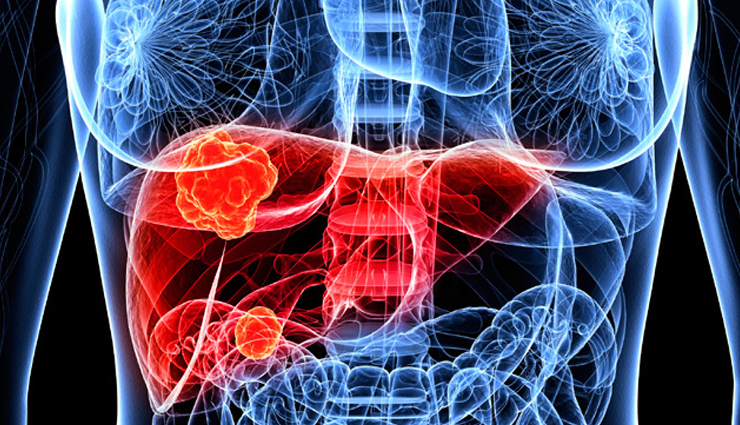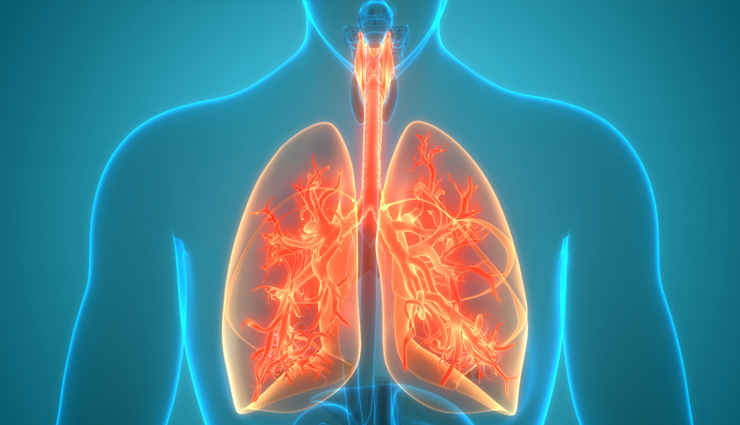- Home›
- Healthy Living›
- 9 Health Risks Most Men Might Go Through
9 Health Risks Most Men Might Go Through
By: Priyanka Maheshwari Mon, 22 Jan 2024 2:21:00

In the contemporary world, we encounter an overwhelming array of obligations that can make achieving a balance between friends, family, work, and health progressively challenging. Regrettably, in terms of health, men often downplay the significance of proactive behaviors and are less prone to regular medical check-ups. Despite the heightened visibility of the health and fitness industries, not everyone perceives having the time to incorporate these healthy habits into their lives. This oversight can elevate health risks for men, resulting in a diminished quality of life. While some of these risks are chronic, others are manageable. In this discussion, we will delve into the top nine health risks for men and explore strategies to address them.
Men face societal expectations and psychological pressures that can heighten their susceptibility to specific health risks. The perception that men should relentlessly pursue financial success, provide for their families, and attain a certain status can contribute to their vulnerability. Additionally, men often exhibit a reluctance to discuss physical and mental challenges, whether related to symptoms of a condition or psychological hurdles. This reluctance can elevate the risk of certain health conditions and disorders. To underscore the importance of taking a proactive approach, it is essential to examine the most prevalent health risks for men.

# Heart Disease and Stroke
Heart disease and stroke stand as two primary causes of mortality for men globally. Approximately one in four male deaths in the US results from some form of heart disease. While various factors contribute to cardiovascular conditions, diet plays a pivotal role as a significant risk factor. A diet high in saturated fats, cholesterol, and sodium, coupled with a sedentary lifestyle, can lead to obesity, high blood pressure, and elevated cholesterol levels.
To mitigate the risk of heart disease and stroke, adopting a heart-healthy lifestyle is crucial. This includes regular engagement in physical activities like aerobic exercises and strength training to maintain a healthy weight, fortify the heart, and enhance cardiovascular health. A balanced diet that incorporates fruits, vegetables, whole grains, lean proteins, and healthy fats—while minimizing processed foods—is equally important. Additionally, reducing stress, quitting smoking, and moderating alcohol intake are effective measures to promote a healthy heart.

# Diabetes
Type 2 diabetes, a chronic condition characterized by insulin resistance or inadequate insulin production to regulate blood sugar, poses a considerable health risk for men. Unfortunately, males face a heightened risk, as they are more prone to developing type 2 diabetes at a lower weight than women, according to the CDC. Family history can further elevate this risk, but lifestyle habits, particularly related to an unhealthy diet, processed foods, and sedentary behavior, are the most prominent risk factors.
To reduce the risk of diabetes, prioritizing health and wellness through regular exercise and a balanced diet is essential. Physical activity enhances insulin sensitivity and helps manage blood sugar levels, while a diet focusing on whole foods, with limited sugary or highly processed items, contributes to blood glucose control. For those at risk, regular screenings with a doctor are recommended.

# Prostate Cancer
The prostate, responsible for producing seminal fluid, can undergo changes with age, potentially leading to benign prostatic hyperplasia or prostate cancer. Prostate cancer is prevalent and a significant health risk for men, with approximately one in eight men being diagnosed during their lifetime.
While the precise cause of prostate cancer remains unknown, several risk factors increase its likelihood. Early detection is crucial for a positive prognosis, and regular screenings with a urologist, including the prostate-specific antigen (PSA) blood test and digital rectal exam (DRE), are recommended. These screenings facilitate the identification of abnormalities, with further evaluation, such as a biopsy, if necessary. Men over 40 should discuss scheduling a prostate exam with their doctor.

# Alcohol Use
Men exhibit a higher likelihood of engaging in binge drinking or excessive alcohol consumption compared to women, leading to alcohol-related deaths or hospitalizations, as reported by the CDC. Prolonged alcohol abuse can result in liver disease, heart problems, mental health disorders, weakened immune systems, and more.
For those with an unhealthy relationship with alcohol, quitting altogether or adhering to moderate drinking guidelines (up to one or two drinks per day for men) is advisable. Alcohol-free alternatives are also available to support a vibrant social life without the associated risks of alcohol.

# Liver Disease
Liver disease encompasses various conditions such as cirrhosis, fatty liver disease, hepatitis, and liver cancer. Men face a higher risk of developing liver diseases due to specific lifestyle factors and behaviors, being twice as likely as women to have primary liver cancer and more likely to succumb to chronic liver disease.
Preserving liver health involves avoiding excessive alcohol consumption, especially for those with a family history of liver problems or substance abuse. Adopting healthy lifestyle habits, regular check-ups, and blood tests contribute to early detection and intervention.

# Respiratory Diseases
Respiratory diseases, including chronic obstructive pulmonary disease (COPD) and lung cancer, present significant health risks, with men being more susceptible, particularly among smokers or those exposed to environmental pollutants or harmful chemicals.
Quitting smoking is paramount to reducing the risk of respiratory diseases, given smoking's association with severe lung disorders. For individuals with occupational exposure to harmful substances, adhering to safety guidelines and utilizing protective gear is crucial. Regular exercise also aids in improving lung function and capacity.

# Depression and Suicide
Mental health, a pressing concern in contemporary society, affects close to 60 million US adults, with nearly 40% of men hesitating to discuss their mental health due to societal expectations. Untreated depression carries a higher risk of suicide, with the male suicide rate approximately four times higher than that of females in 2021.
Seeking professional help is crucial for individuals suffering from depression, as silence and societal expectations contribute to men suffering in isolation. Initiatives to destigmatize mental health discussions and promote open dialogue are essential.

# Unintentional Injuries
Unintentional injuries or accidents, encompassing car accidents, motorcycle incidents, sports-related injuries, and workplace accidents, rank among the top health risks for men. Men's inclination toward risky behaviors and engagement in higher-risk industries, such as construction, manufacturing, and transportation, contributes to their susceptibility.
Prioritizing safety in daily life is imperative to reduce the risk of severe harm. This includes adhering to safety guidelines, using protective equipment, and promoting a culture of safety in workplaces and recreational activities.

# Erectile Dysfunction
Erectile dysfunction (ED), the inability to achieve or sustain an erection for sexual activity, is a common health risk for men that increases with age. Open communication with a doctor about symptoms is crucial, as various treatment options are available.
Lifestyle changes, stress management, and adjustments to medications causing ED are viable approaches. Medical interventions also exist to address erectile dysfunction, emphasizing the importance of seeking professional advice and support for individuals experiencing this condition.





